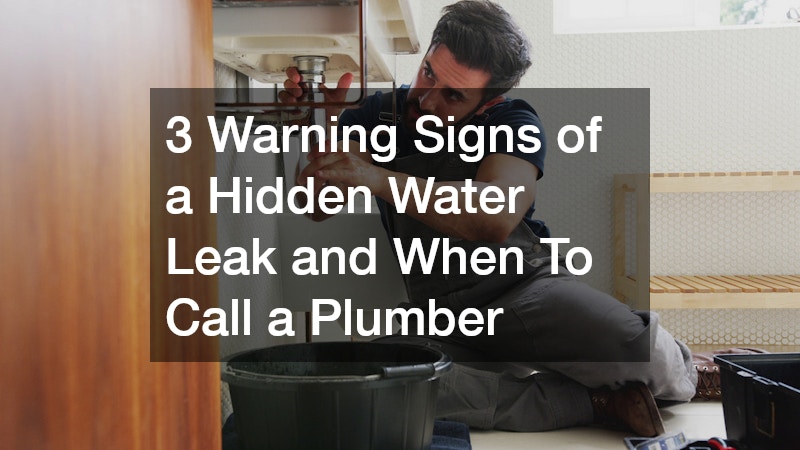
Hidden plumbing issues can quietly cause serious damage to your property long before you see the first signs. One of the most common and costly culprits is a water leak . Unlike burst pipes or overflowing taps, hidden leaks often develop behind walls, under floors or within ceilings—making them harder to detect until it’s too late.
Recognising the warning signs early can help you avoid expensive repairs and protect the structural integrity of your home. Here are three signs you may have a hidden leak and advice on when to call a licensed plumber.
1. Unexplained Increases in Your Water Bill
An unexpected spike in your water bill is one of the most common early indicators of a water leak . If your usage habits haven’t changed—no extra guests in the home, no increased gardening or appliance use—but your bill suddenly climbs, it may point to an issue hidden in the system.
The leak might be small, but over time even a minor, continuous drip can waste thousands of litres of water. Left unchecked, it doesn’t just affect your budget—it contributes to water damage, mould growth and reduced property value.
Check the meter : Turn off all water fixtures and appliances, then check your water meter. If it’s still running, there’s likely a leak somewhere on your property. This simple test can save you time and money by helping you detect the problem early.
When to call a plumber : If you’ve ruled out visible leaks or faulty appliances, call a professional plumber. They’ll use specialised equipment—such as acoustic sensors and thermal imaging—to locate the hidden source without invasive digging or dismantling.
2. Damp Patches, Peeling Paint or Discoloured Walls
Have you noticed bubbling paint, warping timber or damp, mouldy patches on your walls or ceiling? These signs often mean there’s excess moisture accumulating beneath the surface—likely caused by a leak .
Damp areas can appear in places where no water should be present, like hallway walls or living room ceilings. This is especially common in older homes or buildings with ageing pipework.
Why it’s serious : Continuous moisture can weaken plaster, rot timber framing and damage electrical wiring. If mould starts to develop, it creates a health hazard—particularly for those with asthma, allergies or compromised immune systems.
When to call a plumber : As soon as you see signs of unexplained dampness, get it investigated. A plumber will perform a pressure test and inspect your system for hidden faults. The faster you act, the less likely you are to face major repairs later.
3. Musty Smells or Mould Growth
That persistent musty odour you can’t quite place? It might be coming from behind your walls or under your floorboards. Mould thrives in dark, damp environments, making it a reliable sign of a hidden leak.
You may not see mould straight away, but you’ll smell it. Over time, the spores can spread and become visible around skirting boards, inside cabinetry or in grout lines.
Health risks : Prolonged exposure to mould can trigger respiratory issues, eye irritation, skin rashes and other allergic reactions. For young children and elderly residents, it poses a particularly serious health threat.
When to call a plumber : Don’t wait for visible mould growth. If there’s an unexplained musty smell in your home that doesn’t go away with cleaning or ventilation, contact a plumber immediately. The source of the leak needs to be found and repaired to eliminate the moisture fuelling the mould.
Hidden leaks are not DIY-friendly problems. The longer they go undetected, the more damage they can cause. Professional plumbers use non-invasive methods to pinpoint the leak and repair it efficiently—saving you from unnecessary wall or floor removal.
Plumbers also offer valuable preventative solutions , such as pipe re-routing, pressure regulation and water-saving device installations. These help minimise the risk of future leaks while improving the efficiency of your system.
If you’ve noticed higher bills, suspicious damp spots or persistent odours, don’t ignore them. A hidden water leak can remain undetected for weeks—or even months—causing long-term structural damage and health issues for your household.
Professional plumbing inspections can identify hidden leaks before they become disasters. Licensed plumbers can also help with futureproofing your system, offering practical upgrades or maintenance plans to keep your home safe and dry.
.




